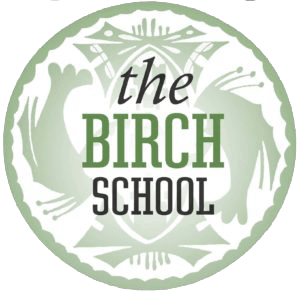Our curriculum is designed around each student, and arises from the process of discovery
CURRICULUM, COURSES AND SUBJECTS
Our curriculum is designed around the student’s process of discovery. A foundational plan is put in place for each student, using the student-led conference and strong parent communication, that they can depend on to form the base of their academic progression. We use a wide variety of tools and curriculum for learning.
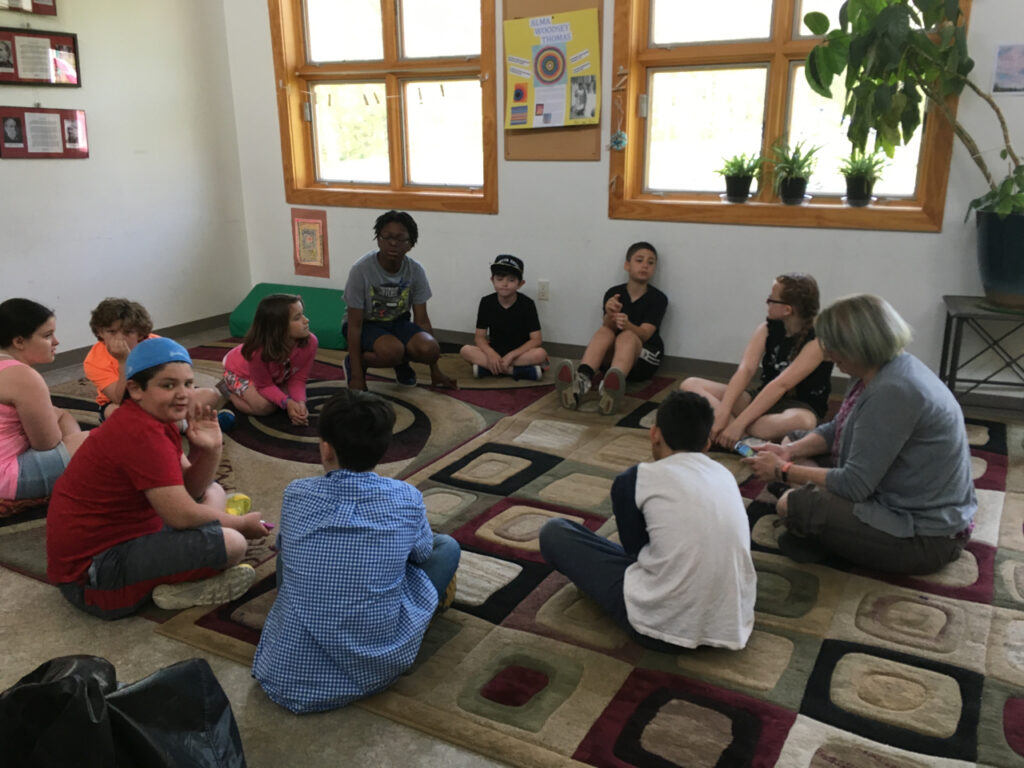
The Talking Stick Circle
One of the central aspects of our school day is the Talking Stick Circle, which we use in community circles, in collaborative groups, and for conflict resolution. The circle is central to our development of a supportive, inclusive, and kind community. We model a consensus group process, facilitated to include everyone fairly and to bring out each participant’s voice. Students get better and better at using this tool as they gain more experience with it. Even the youngest and shyest soon become comfortable talking in circle. When they have the talking stick, they know they have the attention of their peers around the circle. We use this process to solicit ideas, problem-solve, resolve conflict, address issues, plan and self-reflect.
We focus on Project-Based Learning, with opportunities for multi-disciplinary learning in real-life and multi-dimensional projects, completed alone or in small groups. This is primarily the focus in the afternoon. This allows for us to match student interest with projects that are intrinsically attractive.
We Match Student Interest With Projects
We have an inventory of Learning Skills that students work to master over time. This inventory is constantly being evaluated and adapted. Our school uses an online tool that allows us to keep records of the skills that each student has mastered and the skills that each student is continuing to work on. This visual representation of mastery allows students, teachers, and parents to help guide students to participate in a varied array of learning activities that meet learning goals in a variety of subject areas. This program also allows for recordkeeping for student transcripts of course and project completion.
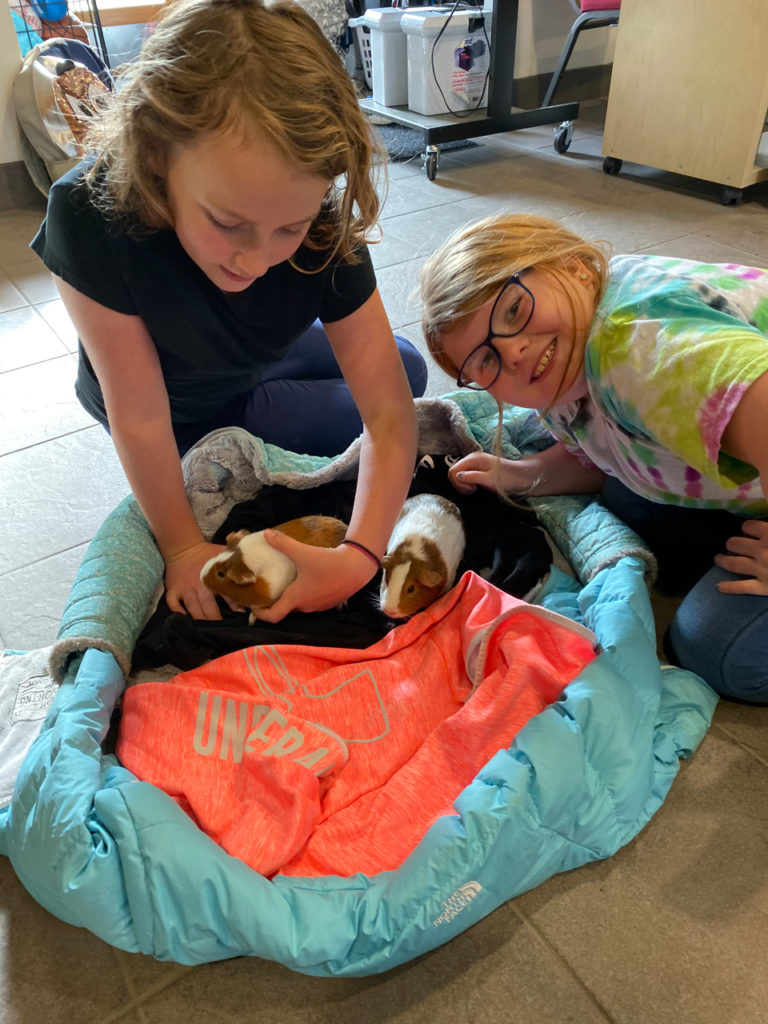

“We Match Student Interest With Projects That Are Intrinsically Attractive”
We have an inventory of Learning Skills that students work to master over time. This inventory is constantly being evaluated and adapted. Our school uses an online tool that allows us to keep records of the skills that each student has mastered and the skills that each student is continuing to work on. This visual representation of mastery allows students, teachers, and parents to help guide students to participate in a varied array of learning activities that meet learning goals in a variety of subject areas. This program also allows for recordkeeping for student transcripts of course and project completion.
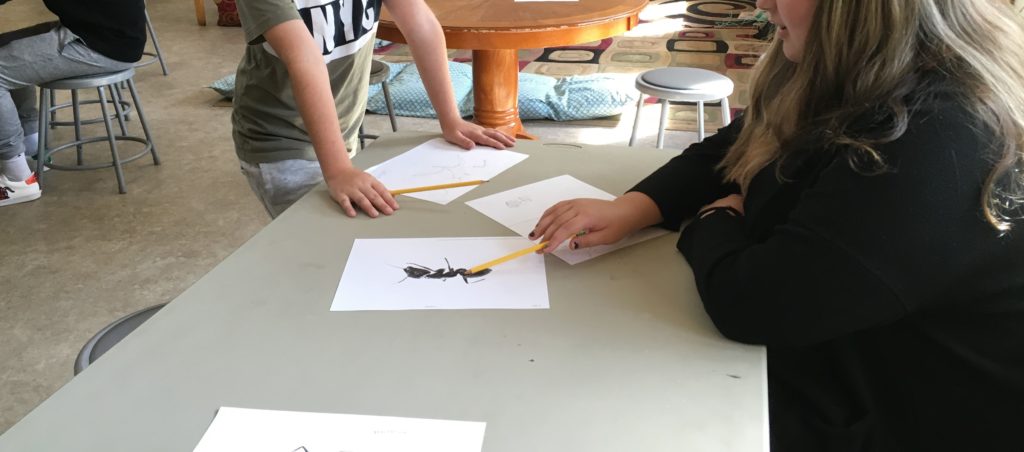
Our curriculum and relationship to the Common Core
The following is our program description as presented on our application to the New York State Board of Regents for a provisional charter, which we received in 2014 and was renewed in 2018.
“The curriculum consists of the core subjects of Math, English Language Arts, Science, Social Studies, Physical Education, Health, Art, Music, Computer Science, Foreign Language, Fire Safety, Drug and Alcohol Abuse Prevention, as outlined in the requirements from New York State.”
Emotional and social intelligence is as important as traditional academics at The Birch School. We teach “The Growth Mindset”, and help students develop healthy habits of mind and body. We believe that our children’s minds are wired for connections, and that a strong, trusting community of children working together allows kids to produce their best work. We spend a considerable amount of time focusing on community-building activities, including team-work, developing
communication skills, collaborative skills, compromise and cooperation, and community celebrations. All of these aspects of school life help craft a safe, inviting, joyful building full of young people growing into their own potential in their own ways.
Assessment & Testing
At Birch, we rely on Authentic Assessments to measure student progress. In an authentic assessment, the emphasis is on what students can do with their knowledge rather than memorizing facts or regurgitating information in tests.
Authentic assessment takes place at the twice-yearly Showcase in December and June. School and community members are invited to see the work students have been producing that term, and can ask questions, listen to student descriptions and explanations, review students writing, see their projects, and more. Another instance of authentic assessment is the Student-led Conference, which students prepare to discuss their strengths and challenges with their parents and to plan their studies.
Records of each student’s academic results are kept in Teacherease, our Learning Management System. Report cards and written narrative assessments from teachers are sent to parents twice each year.
Students may be tested yearly using a state-approved test such as the CAT –5, Terra Nova, or other standardized test at the request of parents..
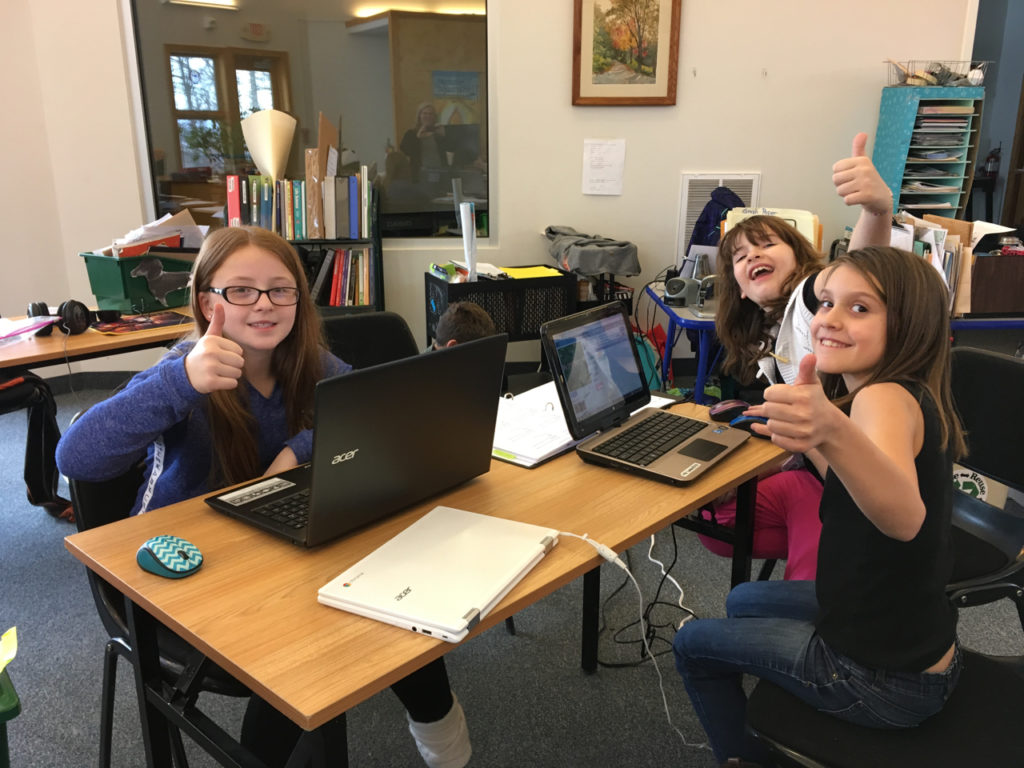

Portfolios & Testing
Quarterly authentic assessments are conducted at the quarterly showcase. School and community members are invited to see student work, ask questions, listen to student descriptions and explanations, review students notes and writing, see projects, and more. Records are kept daily and a quarterly and final student multi-media and written portfolios are prepared .
Students are tested yearly using a state-approved test such as the CAT –5, Terra Nova, or other standardized test.
We use well-established subject areas for each learning level.
For each learning level we use well-established subject area National Learning Standards such as the Association of American Historians US History Standards, the National Geography Standards, and the Modern Language Association learning standards, as well as the NYSED Standards and Common Core. These Standards serve as a guide and benchmark for student performance. But the program is individualized, so the curriculum can vary according to each student’s needs.
We search out interesting and creative curriculum tools, across a spectrum from electronic to old-fashioned paper and pencil, to create authentic learning experiences for each student. Math, English, Science, Technology, Physical Education and History teachers rely on their long experience to craft scope and sequence of quarterly courses for student cohorts that meet students at their learning level and presents them with multiple opportunities to learn.
We develop a comprehensive, content-rich curriculum custom designed for each student. In cases where students exceed the standards for their given learning level they are encouraged to continue to work through the material at their own pace. In situations where students have not yet met expectations for their learning level, scaffolding and remediation are provided to assist the student in advancing to the expected level.
We use a variety of tools: books, textbooks, online interactive textbooks, workbooks, videos, online lectures, library resources, hands-on projects, experiments, field trips, computer programs and specially designed individual curriculum resources. Students learn to engage with the material, take notes, ask questions, and use self-directed learning tools.
We aim to prepare students to complete the expectations of the NYSED Standards as appropriate for each individual student. In many situations this means students will work through material at a faster pace than in a traditional classroom. When students have met the Standards expectations they will be given work that provides the next logical step up on the college and career readiness trajectory.
We offer a comprehensive, school-wide literacy program at all levels. Our expectation is that reading in all sources, i.e., books, newspapers, magazines, blogs, is a part of every school educational activity, and that a culture of literacy is promoted.
We emphasize learning across disciplines, and project-based learning is a key component of our curriculum. We provide many hands-on opportunities, and embrace design thinking through activities like engineering and technology challenges.
Our students often work in groups and develop collaborative skills such as communication, active listening, and compromise. Our educational program provides learning experiences that ensure that students are able to independently discern a speaker’s key points, request clarification, and ask relevant questions. They learn to build on others’ ideas, articulate their own ideas, and confirm they have been understood. Through daily community meetings students learn to be good citizens, be responsible to themselves and others, and develop good character.
A Plan is established at the beginning of the school year and at each Student-led Conference. Students and teachers record work and progress daily. At the completion of each term student progress is assessed and learning goals are adjusted as necessary.
